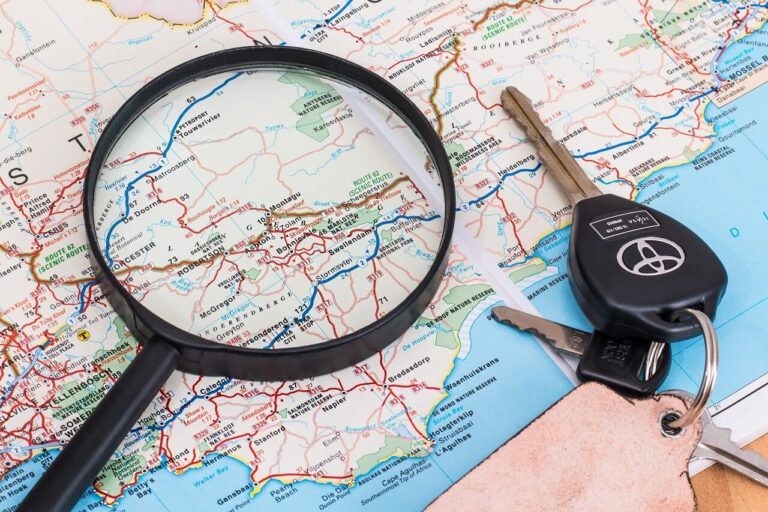How to Manage Cyber Risks During Travel

Regardless of where we go, smartphones and laptops tend to accompany us. So, if you’re traveling, it’s natural to take your gadget along for work or personal reasons.
Unfortunately, cyber risks grow along with the possibilities we’ve received through the use of electronics. And they are even more prevalent when you travel.
Using open Wi-Fi networks, charging your phone through public charging stations, and many more instances can help criminals take control of your data.

So, how does one protect themselves against multiple cyber risks during the holidays abroad?
Set PIN-Codes on Your Devices
If you haven’t set a reliable PIN on your device, it’s time to do so. In fact, it should be the first thing you do when you get a new gadget. A good password will protect your personal information, whether on your laptop, tablet, or phone.
Especially when you’re traveling, you might leave your device unattended on the table in a restaurant or in your pocket. When thieves get a hold of your phone without a PIN, facial recognition, or fingerprint ID, they’ll be quick to steal your data.
Update Passwords
When you do set a PIN on your device, don’t forget to update it regularly. If you leave your gadgets in a safe or a security box, create a unique code.
The same goes for passwords you set for various services and accounts; skip basic security codes like “password” or “1234”, as they are very prone to cyber-attacks.
A strong password includes 12 characters, a mix of letters, symbols, and numbers. If reliable, long passwords are not your forte, opt for a password manager to develop good codes.
It will keep them in a safe place and automatically fill out the required password when needed. You must remember a master password to access the software features.
Be Careful with Public Wi-Fi Networks
What does one do as soon as they arrive at a new location? Connect to the first available Wi-Fi network to access social media platforms. And while free internet connection is extremely appealing and available in most hotels, you should be extra cautious when connecting to one.
These networks don’t use encryption, minimizing any security measures present there and opening up your data to anyone who wants easy access to it.
This vulnerability can be exploited both by random criminals and network owners, as they can dive into your information as long as you’re connected to that cafeteria Wi-Fi. You can safeguard your data by using a VPN for travel and trips. This software gives users a chance to transform their connection into a secure one through encryption. With a VPN enabled, cybercriminals won’t be able to read any of your sensitive data, even if you use a free Wi-Fi network.
Use a Reliable Antivirus
Another great way to protect your personal information and general privacy is to install a good antivirus on all of your devices. This software will enhance the firewall that comes with the device and the VPN you’re using. Any time you connect to an infected network, open a malicious link, or receive a phishing email, your antivirus will work as an additional security mechanism to prevent the malware from spreading to your gadgets.
You may like to check out: The Best Free VPNs for Anonymous and Safe Internet Surfing.
Back-Up Your Information
While a good password and antivirus software will protect your data from ending up in the wrong hands, you will lose it if you no longer have access to your device. When your smartphone is lost or stolen, you will grieve for all the photos and files stored exclusively there. So, before traveling, back up your information in the cloud. Then, you’ll still be able to recover it in unfortunate circumstances.
Turn Auto-Connecting Off
When you’re away from your secure networks, turn off the auto-connecting feature on your devices. Although it’s useful to have in your arsenal, it can become a threat when abroad. As we’ve already discussed, connecting to insecure Wi-Fi networks can open the doors for attackers to steal your information. First, turn your VPN on or study the network to see if it’s safe. Only then, connect.
Don’t Connect to Public Charging Stations
Just like free Wi-Fi, accessible public charging stations are convenient. Sadly, they are just as insecure when it comes to personal safety. When you leave your device to charge, criminals can connect to it either to steal data or to upload malware onto the system. Some hackers also use monitoring software to steal people’s personal information. So, avoid leaving your gadget unattended and plug your charger into the power socket nearby.
There are many cyber threats to look out for when you travel. Yet, using this guide will minimize the likelihood of your data being compromised by hackers. Stay safe, and don’t let criminals get a hold of you.






